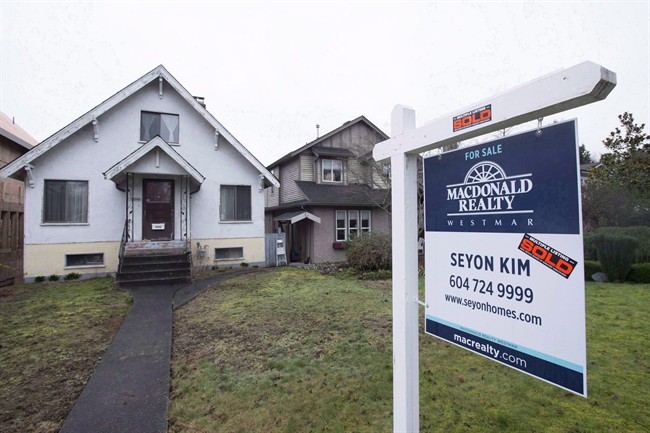Buying a home may soon be a bit less stressful for Canadians thanks to a precedent-setting ruling that could force real estate boards to hand over data on home sales and in turn make buying a home more transparent.

In April, the federal Competition Tribunal ruled against the Toronto Real Estate Board (TREB) in a long-standing dispute over access to home sales data. The tribunal ruled the TREB was creating unfair competition and keeping prices high by keeping data – like how much money a home sold for – private.
READ MORE: CREA says April home sales hit record level
By only providing that data to personal clients, the tribunal ruled TREB was denying agents the ability to create “new and innovative real estate brokerage services using the Internet.”
TREB maintains that it limits access to this data to ensure the privacy of its buyers and sellers.
While it’s not yet clear what type of data will be released, many brokerages believe the ruling could set a precedent for other real estate boards in Canada to release their home sales data.
And that has the potential to make the entire home buying experience a lot less stressful for Canadians.
“This is really the ‘Googlization’ of the real estate industry in Canada,” said Ara Mamourian, broker and owner of Toronto-based Spring Reality. “[Having access to this data] will help people save a lot of time, money and aggravation.”
Currently, Canadian real estate sales data isn’t very “Google-able.” From trip planning, to finding a new restaurant for dinner, nearly everyone takes to the Internet, or an app, to research before committing to an idea (especially when money is involved).
READ MORE: Want to buy a house in Canada? It’ll cost you 400 weeks of work
Sure, it’s easy enough to look up list prices for houses in your preferred neighbourhood – but what you really want to know is the final selling price of those houses.
This is especially important in the country’s hottest real estate markets – Toronto and Vancouver – which have become known for wild bidding wars, where homes are purposely under-priced to drive up prices. A recent report by the CBC showed that the bidding wars have even moved North of Toronto’s borders into the Greater Toronto Area.
Rokham Fard, cofounder of Canada’s largest online real estate brokerage TheRedPin.com, said if selling prices were more accessible, consumers would have more insight into what they can actually afford.
“You could inform the buyer that based on prior data the seller has listed the home at a lower price point, based on what other homes in the area have sold for,” Fard told Global News.
“Then you wouldn’t get mentally drained from going into all of these bidding wars.”
Recognizing the potential power of this data, Toronto’s Spring Reality is working on a database that will predict what homes might sell for using past sales data.
“What we want to do is stop wasting people’s time,” said Mamourian. “We want to narrow down on the number of people with a $700,000 budget looking at properties that sell for over $800,000.”
But Mamourian’s team can’t move forward with their project until the tribunal provides more information about what data TREB should release.
Meanwhile other real estate startups are turning to crowdsourcing.
Take for example RedDoor – a mobile app that aims to provide context about the Toronto real estate market by crowdsourcing selling data from home buyers themselves.
RedDoor allows users to compare estimated property values by neighbourhood, right down to a specific street. Homeowners are encouraged to share details about their property, along with the selling price, in order to build the database. In exchange for their data, RedDoor donates to a charity that operates in their neighbourhood.
The app, which launched earlier this month, already has data on over 100,000 Toronto-area homes in 44 neighbourhoods.
READ MORE: Buying your home, from your computer?
- Toronto Pearson gold heist: Ontario man arrested at airport after arriving from India
- Capital gains changes could have ‘irreversible’ effects, business groups warn
- A ‘zombie’ virus is raging among raccoons. What to know
- Could notwithstanding clause be used on abortion? Poilievre’s office says ‘never’
“We live in a world where we can research so much on our own – if that information is locked away by key it only makes things more difficult.”
Scott believes that the outcome of the TREB ruling will ultimately trickle down to other major cities in the country and allow companies like hers to grow their databases outside of Toronto.
Global News reached out to many real estate boards across the country,including the Realators Association of Edmonton and the Real Estate Board of Greater Vancouver; however, all declined to comment until more information about the ruling becomes available.
In a statement to Global News, the Canadian Real Estate Association said: “While the Tribunal partially granted the Commissioner’s application against TREB, it has asked the parties to make further submissions regarding the appropriate remedy. We will not be in a position to fully assess the ramifications of the decision until the Tribunal decides the issue of remedy and issues its Order.”




Comments